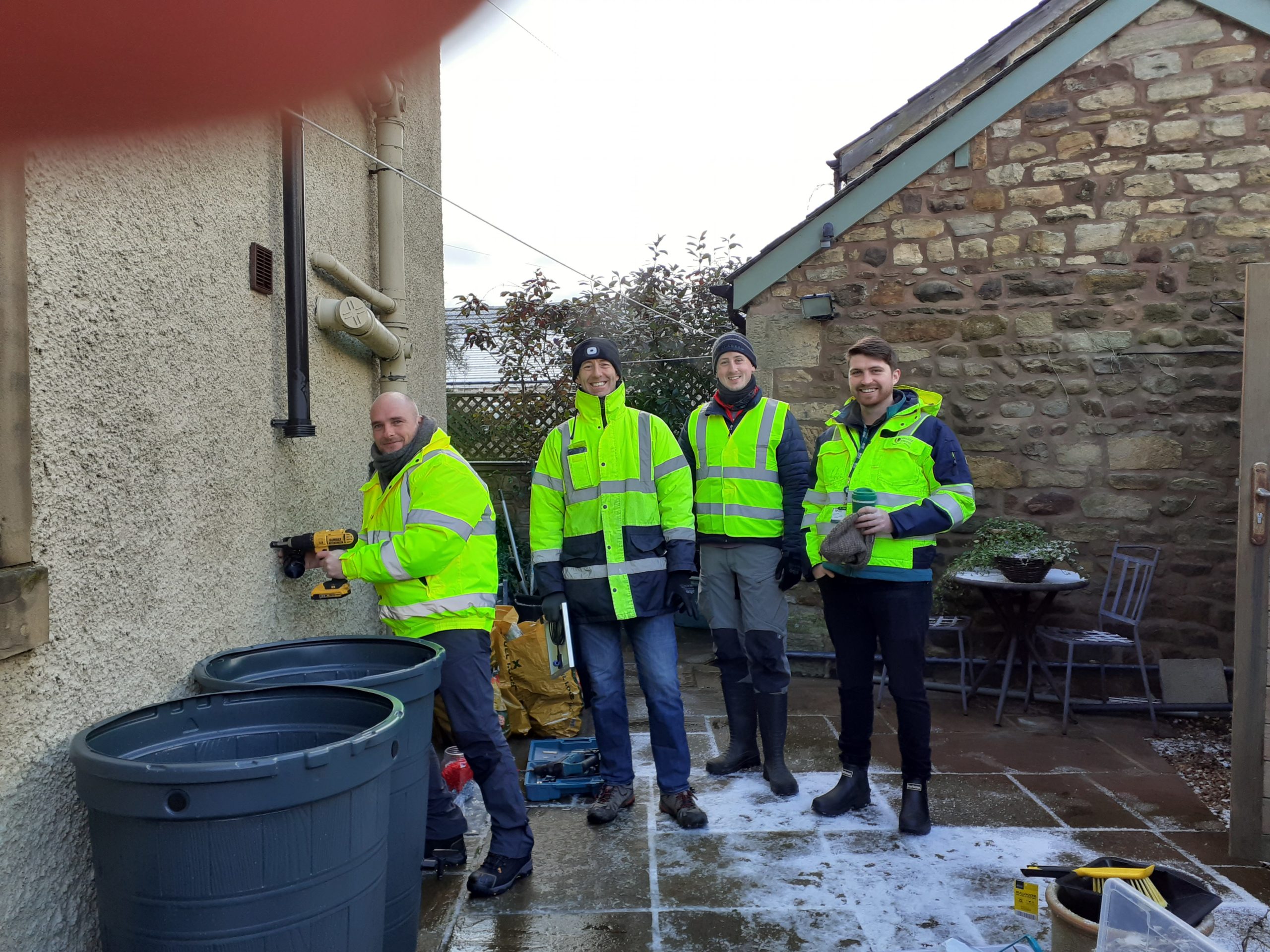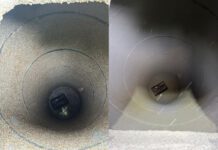
Water technology firm SDS has completed the installation of its latest smart rainwater management systems at homes in Forton, Lancashire, and Deal, Kent, as part of water companies’ ongoing efforts to reduce sewage spills into rivers and the sea.
The company’s Intellistorm®-equipped rainwater harvesting tanks use smart technology to retain and release their contents automatically, thereby increasing – seemingly by several orders of magnitude over a standard water butt – their capacity to protect the sewers from being overwhelmed by excess surface water from heavy rainfall. More than 60 systems have already been installed by agreement with homeowners by SDS in January and February 2023 for United Utilities and Southern Water.
The two water companies have committed to deploying several hundred tanks over the next few weeks, including at properties served by United Utilities at Wrea Green in Lancashire, and by Southern Water at homes in its “Pathfinder” locations in Kent and the Isle of Wight.
Intellistorm® works by releasing water from the tank prior to rainfall. By analysing weather forecast data the system calculates how much water to release based on the roof size and the size and location of the tank. This ensures that there is always water available for homeowners to use, for example in their gardens, but also sufficient spare capacity in the tank to accommodate the next rainstorm.
A typical water butt fills once in the winter and then remains full and overflows until water is taken out by the homeowner, often only when summer has arrived. Consequently, a standard butt contributes little to holding back water from sewer networks during the wettest months of the year.
SDS has carried out an assessment of the performance data supplied by the initial 25 tanks at Forton after their first month of operation. Extrapolated across 12 months, and using average rainfall statistics, it has been established that the tanks could hold back up to 75 times their nominal volume, equivalent to each tank holding back 30,000 litres of water a year from the combined sewer at times of peak flows, which is when sewers typically overflow. In Forton alone this equates to a surface water attenuation volume of up to three quarters of a million litres of water per year*. That water is then released once the rain event has passed and the sewers can cope.
Johnny Phillips, Surface Water Strategy Development Manager for United Utilities, said: “We’re delighted to be launching this initiative in Forton. Having looked at a number of areas, we think the smart water tanks will make a real difference in the village and help to increase capacity in our sewer network and deliver local environmental improvements, and the early findings are backing this up.”
Dr Neil Sewell, Director of New Technology Services at SDS, said: “We’ve made exciting enhancements to the Intellistorm® technology since our early projects with South West Water, Anglian Water and Severn Trent Water and we’re pleased to show how the latest version of the tanks begins to deliver some really strong performance in Forton and Deal.”
These projects show that Intellistorm®-equipped smart tanks have the potential to be a really valuable tool for Water Companies in the battle against sewer overflows and flooding, particularly when they are coupled with other sustainable drainage systems and sewer network improvements.
They have the added advantage of providing a supply of non-potable water for homeowners, thus reducing the demand for mains-supplied, drinking-quality water for purposes for which its high level of treatment is not required, whether that’s for watering the garden and washing the car or even flushing the toilet and supplying the household washing machine.
It is also a great way for local people to get involved with helping to solve flooding and pollution, thereby improving water quality in our rivers and bathing waters, as well as protecting the country’s declining natural water resources from over-abstraction, in order to feed a growing and increasingly water-dependent population.
SDS says it is seeing significant interest from water companies in its Intellistorm® systems.
*based on average rainfall accumulations – these figures will vary if the weather is drier or wetter than the average.





